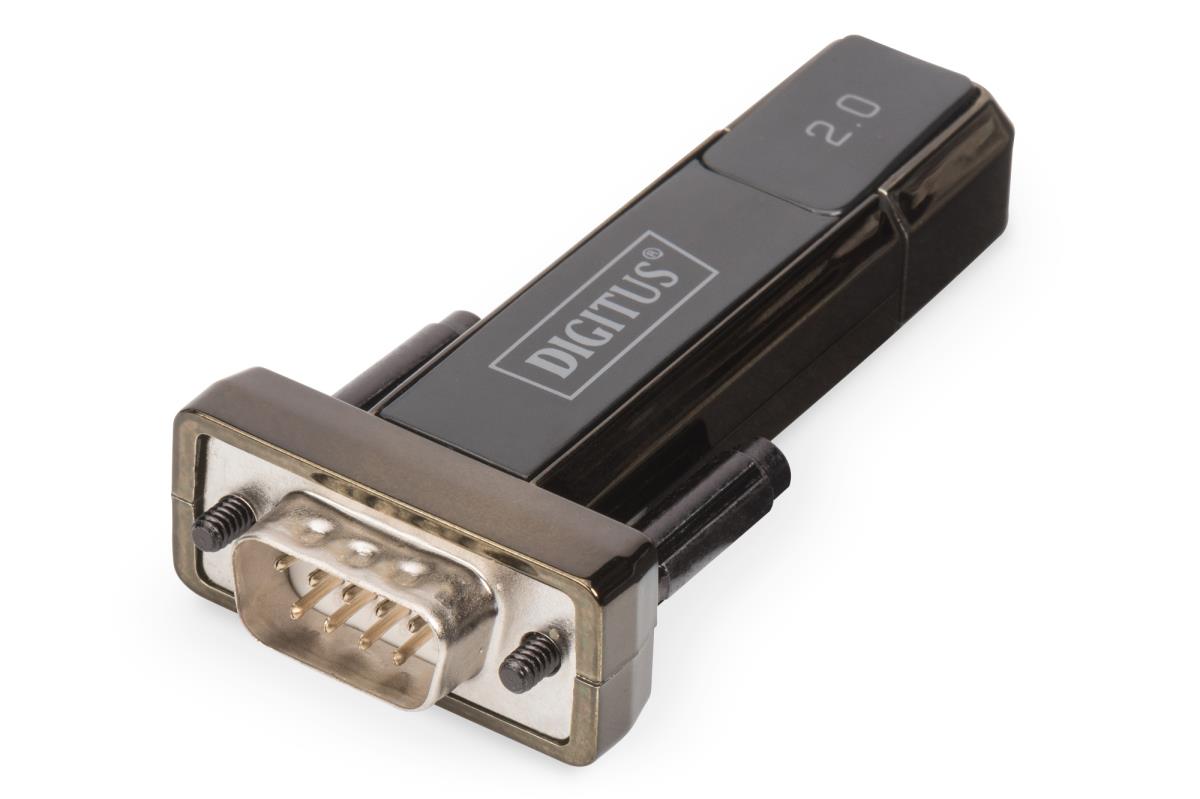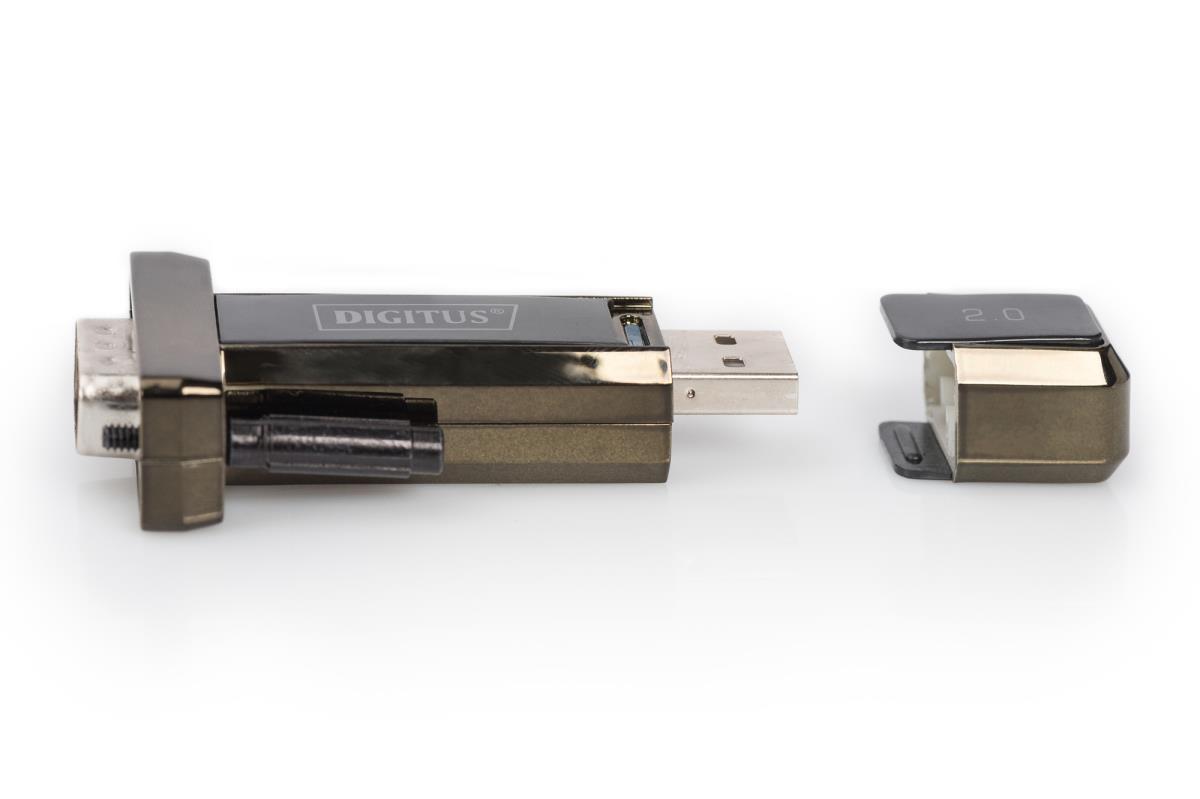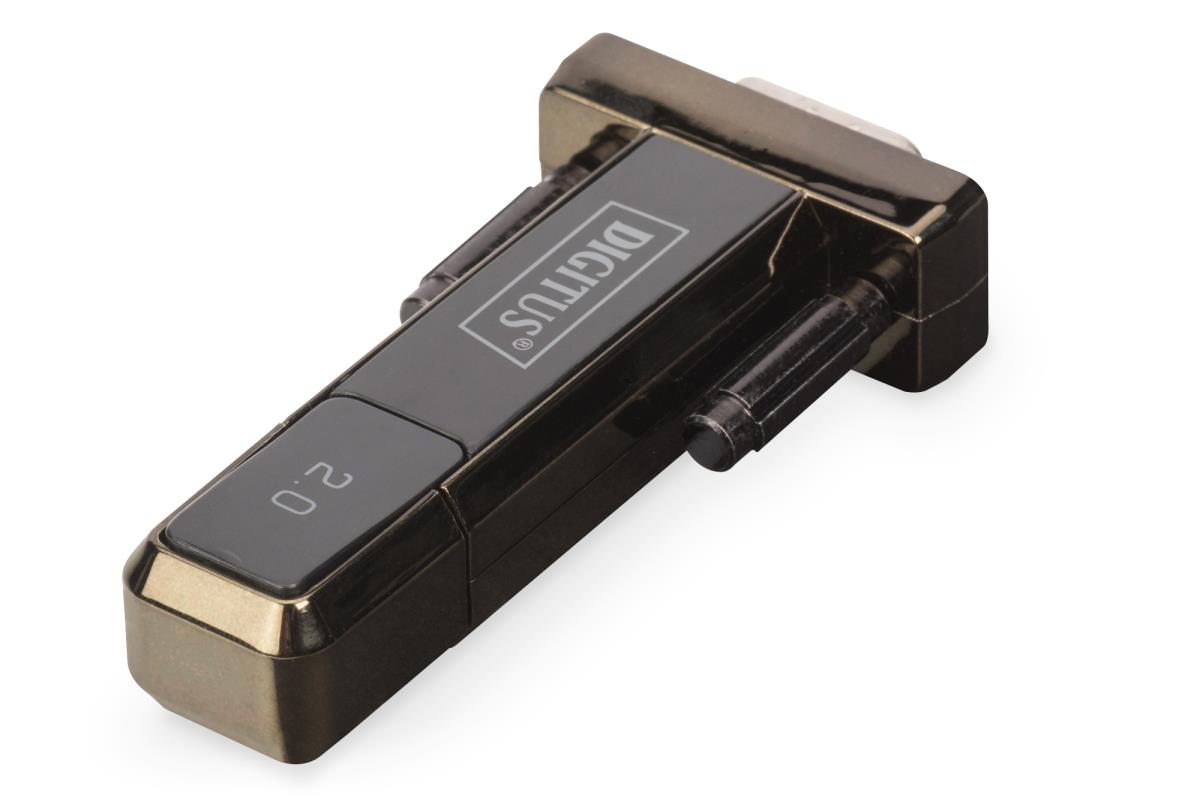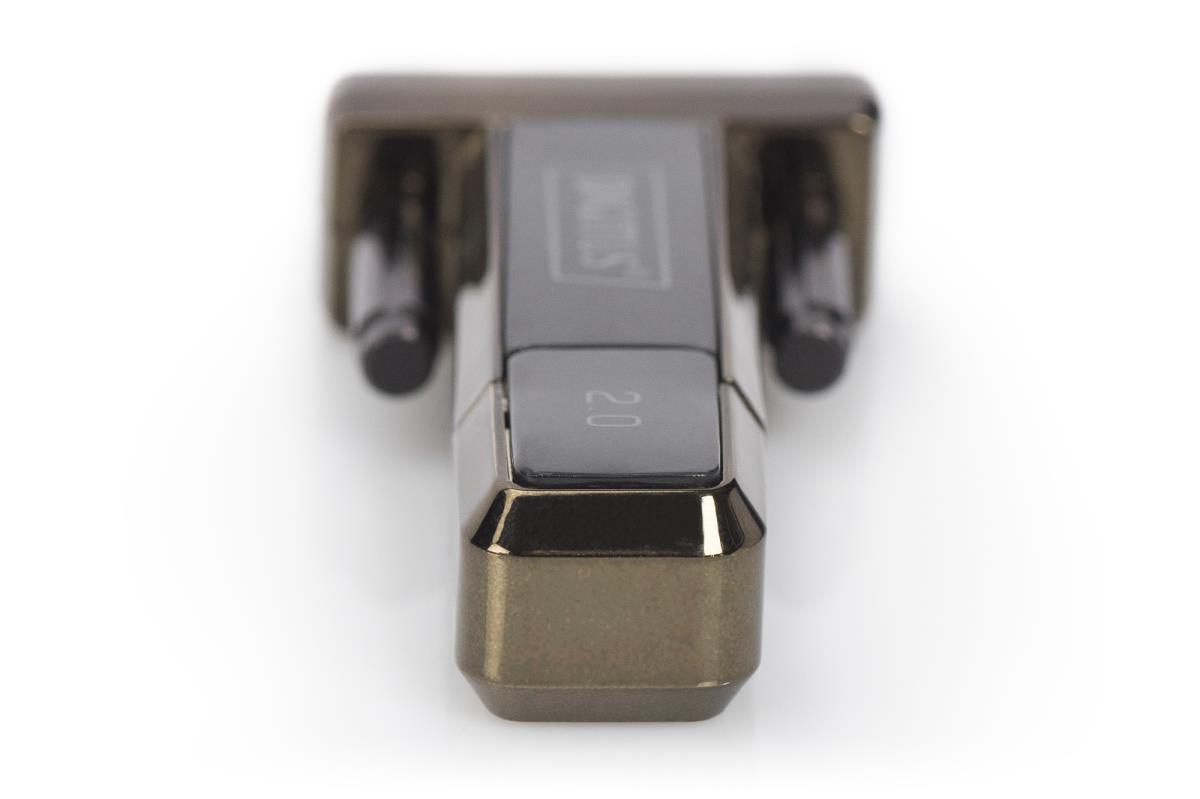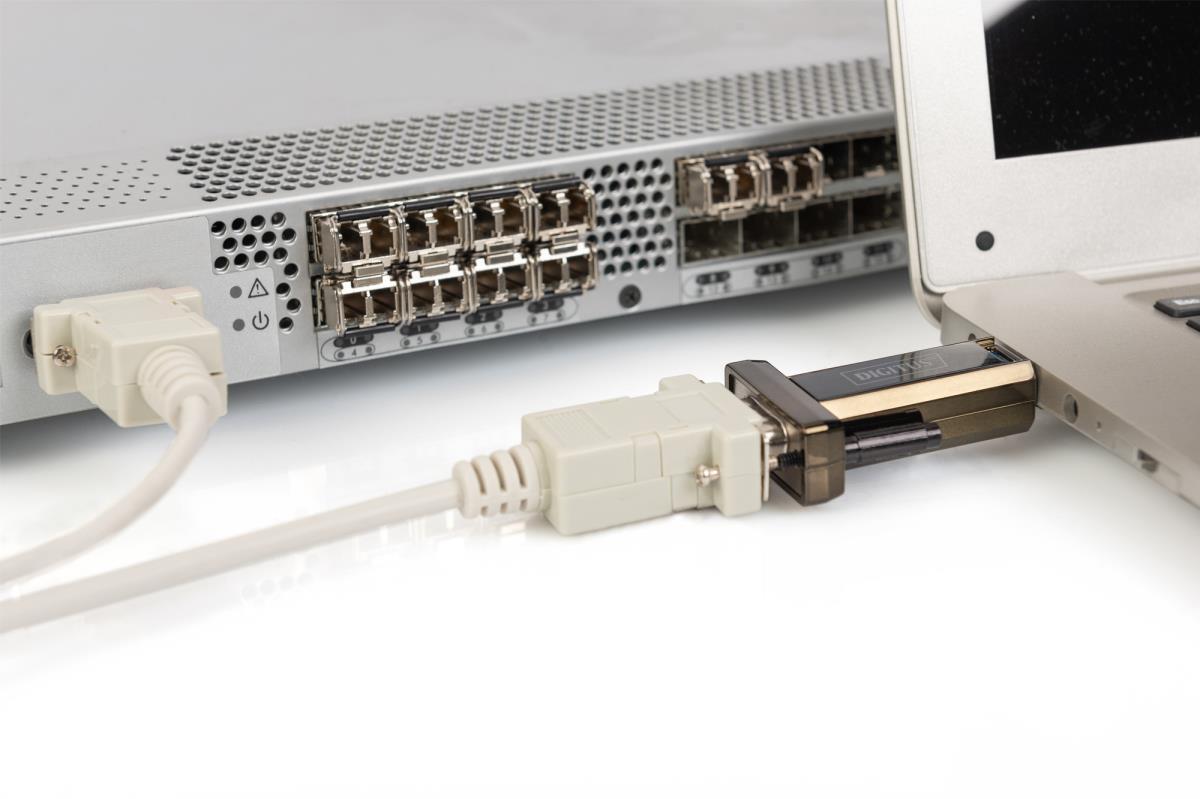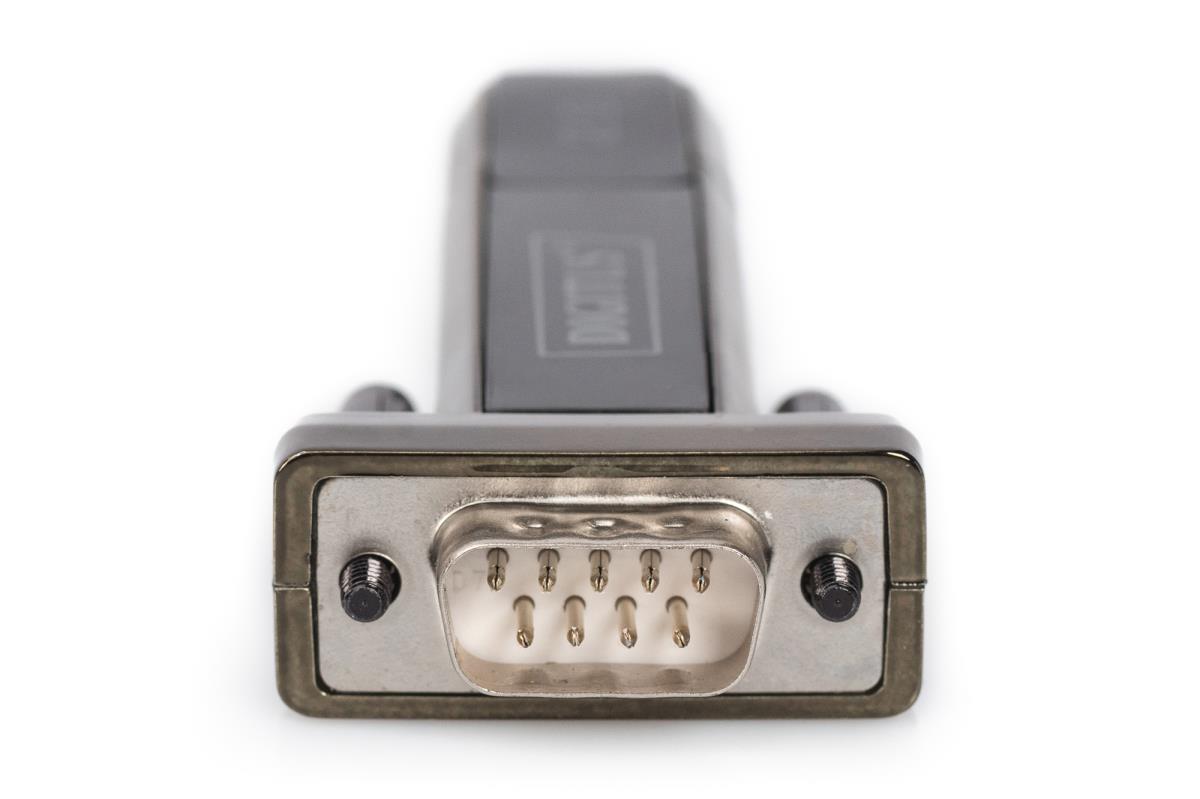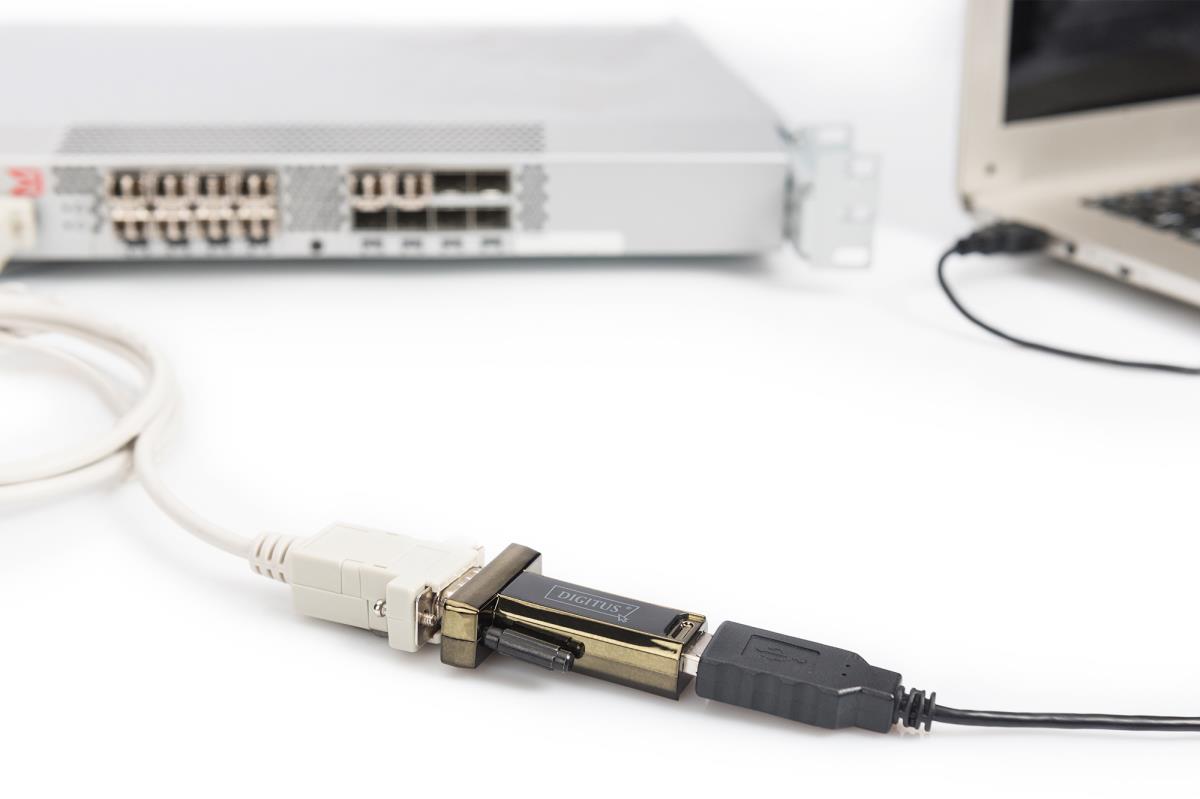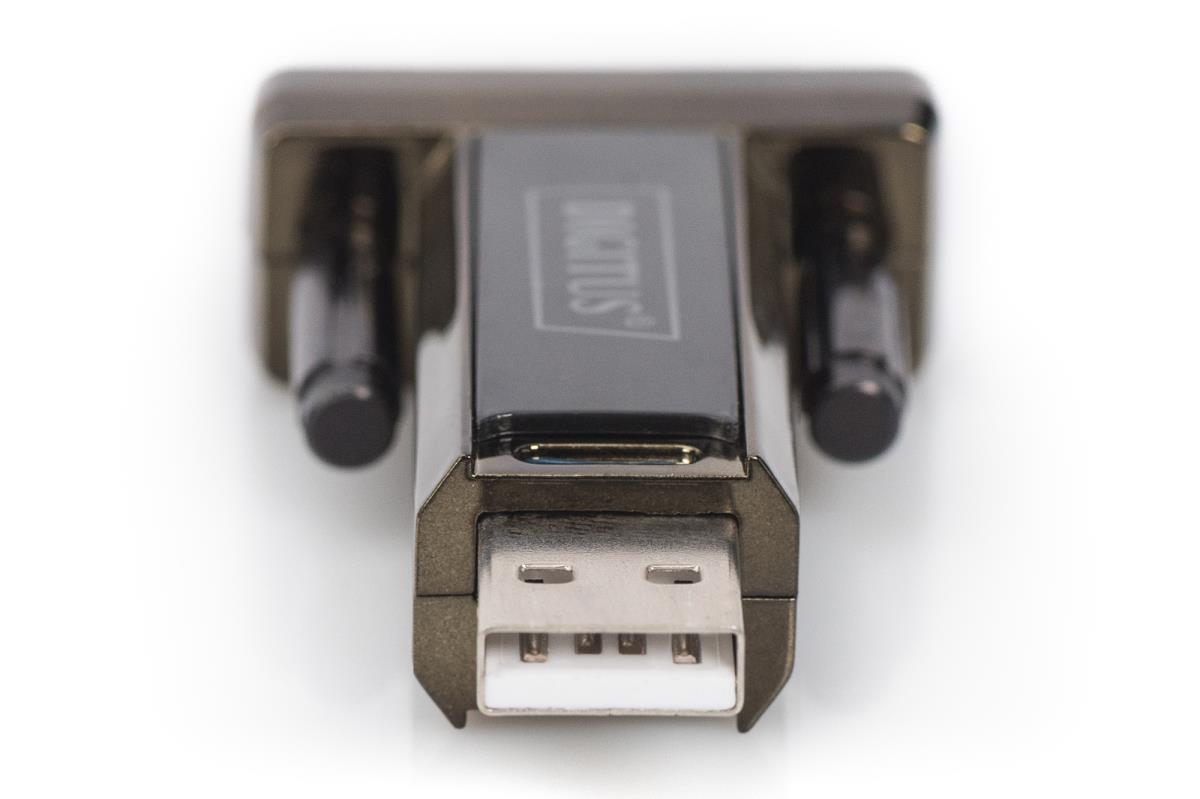
€ 100 Ex VAT.
 DIGITUS USB2.0 To Serial Adapter Black Design Db9
DIGITUS USB2.0 To Serial Adapter Black Design Db9
For personal help or faster delivery
+32 2 558 30 00
Provides a serial RS232 interface via USB2.0
- Serial RS232 interface via USB 2.0: Enables the connection of devices with RS232 interface to modern computers via USB
- USB 2.0 standard compliance: Full support of the USB 2.0 standard for fast and reliable data transfer
- Backwards compatible with USB 1.1: Flexibility for use with older USB standards
- Customizable data transfer rates: Supports data transfer rates from 75 bits up to 128,000 bits per second, providing high flexibility for various applications
- Support for remote wake-up and power management: Efficient energy management and the ability to wake connected devices from sleep mode
- FTDI chipset (FT232RNL): Reliable performance and individual configuration options thanks to the proven FTDI chipset
- Connectors and interfaces: Equipped with an RS232 connector (Sub D 9-pin) and a USB A connector, ideal for a variety of applications
- Full Duplex Interface: Full-duplex communication for simultaneous sending and receiving of data
- Wide operating system compatibility: Supports Windows 11,10, 8.1, 8, 7, Vista, XP, Mac OS X and Linux, ensuring wide applicability
- True CMOS output and TTL input: Supports 5V, 3.3V, 2.8V and 1.8V CMOS outputs as well as TTL inputs for a variety of hardware requirements
The DIGITUS® USB2.0 serial adapter offers a practical solution for providing serial connectivity. A serial RS232 interface is no longer available on newer hardware. The DIGITUS® USB2.0 serial adapter enables data exchange between a USB2.0 port on the computer and peripheral devices with a serial interface (COM port, RS232), such as weather stations, sensors, machine controls, set-top boxes, games consoles, PDAs, scanners, modems, ISDN adapters and many other peripheral devices. The USB2.0 serial adapter is downwards compatible with USB1.1 and enables customizable baud rates between 75 bits and 128,000 bits per second. The individually configurable FTDI chipset ensures compatibility with all common operating systems and also supports power management and remote wake-up. Power is supplied via the USB port; a separate power supply unit is not required.

